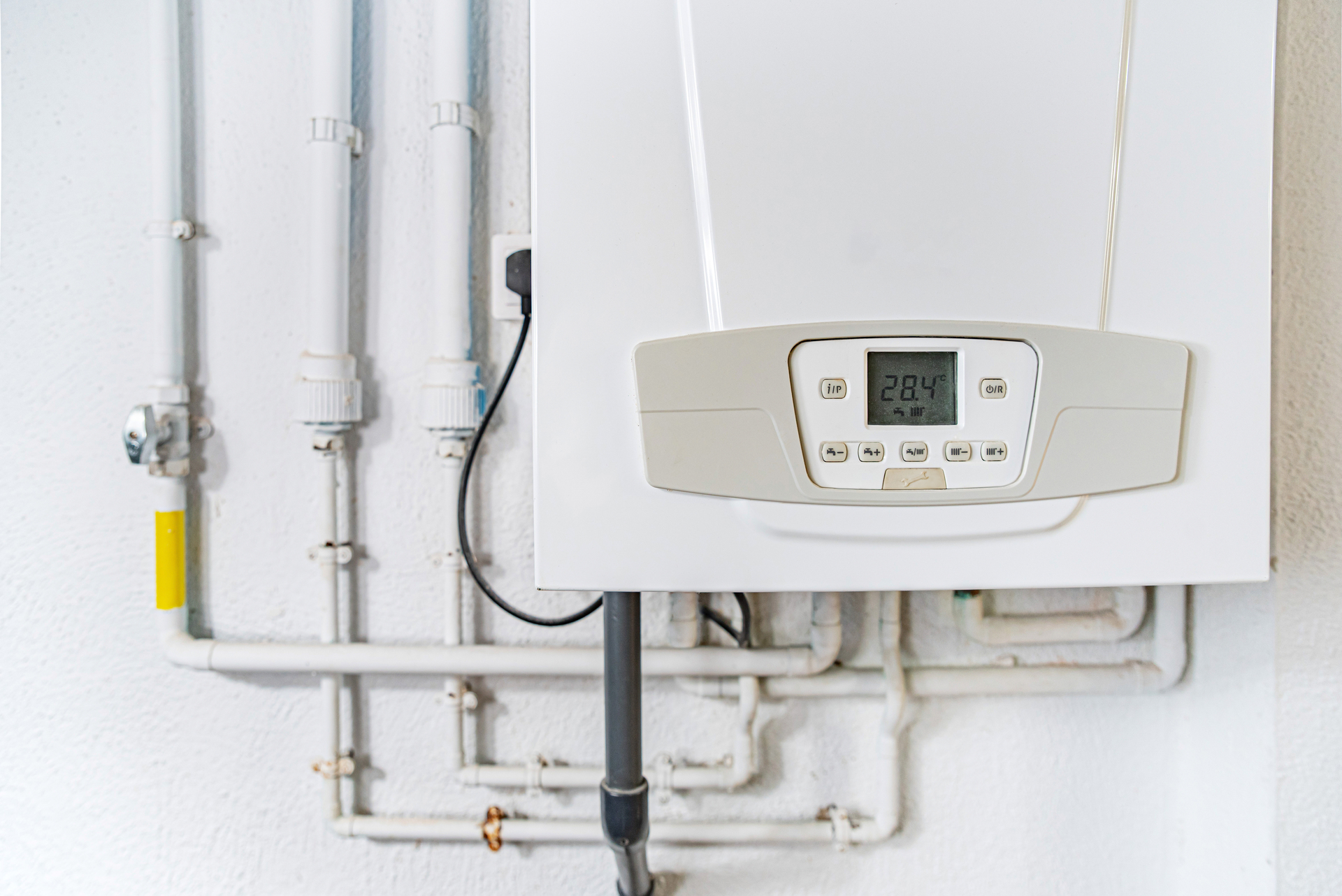Many homeowners and businesses ask, is a combi boiler a condensing boiler? The short answer is yes. Most modern combi boilers are condensing boilers. In fact, since 2005, all new gas boilers installed in UK homes, whether combi, system or regular, must be condensing models by law.
This article explains the difference between combi and condensing boilers, their features, and how they connect to wider heating needs including commercial heating repair, heating services, and boiler servicing.

What Is a Combi Boiler?
A combi boiler, or combination boiler, is a compact and highly efficient heating unit that provides both central heating and hot water on demand. Unlike traditional systems, a combi boiler does not require a separate hot water cylinder or cold water storage tank. It takes cold water directly from the mains and heats it as needed.
This makes combi boilers ideal for homes with limited space and moderate hot water needs. Because they operate only when hot water or heating is required, they are energy efficient and cost effective.
What Is a Condensing Boiler?
A condensing boiler is defined by the way it captures and reuses heat from the flue gases that would otherwise escape through the chimney. This process, known as condensing, significantly improves energy efficiency by preheating the water that returns to the boiler from the heating system.
Condensing boilers are designed with a larger heat exchanger, allowing them to recover more heat and send cooler gases up the flue. This results in greater efficiency and lower carbon emissions.
Are All Combi Boilers Condensing Boilers?
Today, virtually all combi boilers are condensing boilers. The term “condensing” refers to the technology used within the boiler, while “combi” refers to its function. Therefore, a modern combi boiler is a condensing boiler by default.
Older combi boilers, installed before the 2005 regulations, may not be condensing. If you are unsure, it may be time to consider upgrading for better efficiency and lower energy bills.
How Do I Know If My Combi Boiler Is Condensing?
There are a few ways to tell if your combi boiler is condensing:
- Check the installation date. Boilers installed after 2005 are almost certainly condensing.
- Look for a plastic condensate pipe. Condensing boilers expel condensation through a visible pipe, usually running to an external drain.
- Read the manual or model specifications. These should state whether the boiler is condensing.
Does a Combi Boiler Have a Condensate Pipe?
Yes, a condensing combi boiler will have a condensate pipe. This plastic pipe removes acidic water produced during the condensing process. It typically runs from the boiler to an outside drain or soakaway. If this pipe becomes blocked or frozen, the boiler may shut down as a safety measure.
Do You Need a Hot Water Tank with a Condensing Boiler?
You do not need a hot water tank with a combi boiler, even if it is condensing. The boiler heats water directly from the mains supply, so there is no need for stored hot water. However, other types of condensing boilers, such as system or regular boilers, still require a hot water tank.
Energy Efficiency and Environmental Benefits
Condensing combi boilers are known for their excellent efficiency ratings. Many models achieve over ninety percent efficiency. This not only reduces heating bills but also contributes to lower greenhouse gas emissions.
The efficient operation of condensing technology means that less fuel is wasted. As the UK works towards net zero carbon targets, installing an efficient boiler is a practical step for environmentally conscious homeowners and businesses.
Importance of Regular Boiler Servicing
Like any heating system, combi boilers require regular maintenance to perform at their best. Annual boiler servicing ensures that the condensing unit operates efficiently, safely, and reliably. A certified Gas Safe engineer will check the heat exchanger, condensate pipe, pressure levels, and safety devices.
Neglecting servicing can lead to reduced efficiency, higher energy bills, and increased risk of breakdowns. Preventative maintenance is always more cost effective than emergency boiler repair.
Commercial Boiler Service and Industrial Boiler Considerations
Larger properties or commercial premises require a different scale of boiler support. A commercial boiler service includes thorough inspections, cleaning, and performance testing to ensure compliance with safety regulations.
Industrial boilers used in warehouses, manufacturing facilities, and large institutions must be maintained by engineers with specialist knowledge. These systems are more complex and require tailored heating services.
Conclusion
A combi boiler is indeed a condensing boiler in almost all modern installations. This combination provides efficient, space saving, and environmentally friendly heating and hot water. Understanding the difference between the boiler type and the condensing technology helps you make informed decisions about your home or business heating system.
ROMA Heating
For all your commercial boiler needs look no further than ROMA Heating Services. Whether you need boiler maintenance, repairs, or any other heating solutions, ROMA Heating is here to provide reliable and efficient support.
Contact us today, and let us take care of your heating requirements, so you can enjoy a warm and worry free environment.
- Commercial Boiler Repair: We specialise in diagnosing and resolving issues promptly to minimise downtime and disruptions to your business.
- Commercial Boiler Servicing: Regular servicing ensures that your boiler operates efficiently, reducing the risk of unexpected errors.
- Commercial Boiler Maintenance: Our proactive maintenance plans help extend the lifespan of your boiler and maintain its optimal performance.
When it comes to your commercial boiler, trust the experts at ROMA Heating Services to keep your operations running smoothly.